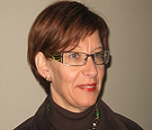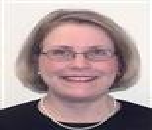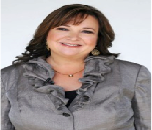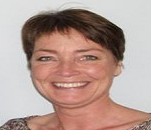Renowned Speakers

Gunilla Hollman Frisman
Division of Nursing Sciences. Linköping University Sweden

Xu Tuzhen
Zhejiang Chinese Medical University China

Gregory Sugalski
Rutgers New Jersey Medical School United States

Madeline Lassche
University of Utah College of Nursing United States

Elizabeth C. Elliott
Texas Children’s Hospital United States

Lorie A. Brown
Brown Law Office/ Empowered Nurses United States

Anita Hunter
Washington State University, College of Nursing USA

Mette Kjerholt
Department of Hematology, Roskilde hospital Denmark
Recommended Global Nursing Webinars & Conferences
Europe & UK
Asia Pacific & Middle East
Canada
Nursing Care 2017
Sessions/Tracks
ConferenceSeries Ltd Conferences takes immense pleasure to extend our warm welcome to invite all the participants from all over the world to attend "4th Annual Congress and Medicare Expo on Primary Healthcare", July 24-26, 2017 in Valencia, Spain which includes prompt keynote presentations, Oral talks, Poster presentations and Exhibitions.
Primary Healthcare 2016 is a forum to explore issues of mutual concern as well as exchange knowledge, share evidence and ideas, and generate solutions. The main focus of primary health care was the diagnosis and treatment of patients, disease prevention and screening.
Track 1: Primary Care
Primary Care is the essential health care that is predicated on scientifically sound and universally acceptable methods and technology, which make health care accessible to individuals and families in a community. Selective Primary Health Care (SPHC) emphasized the cost-effectiveness of vertical programs with measurable results. In addition, an important part of selective primary health care was the creation of political will for funding opportunities. Some global health analysts argue that comprehensive primary health care was an experiment that failed; others contend that it was never truly tested. Comprehensive primary health care (CPHC) is a framework conceived as a global strategy to reduce inequities in health between and within nations and emphasising community action.
Comprehensive primary health care helps in identification and response to social factors which mainly influence health which in turn impact on the key determinants of health. Comprehensive Primary Health care is an approach to health care that highlights social justice, equity, community control and social change. Integration of PHC services continues to be seen as a pivotal strategy towards the achievement of the national goals of transformation of health services, and the attainment of a comprehensive and seamless public health system. The ecumenical mobile health revenue is expected to reach about US$ 23 billion across all stakeholders – mobile operators, contrivance vendors, healthcare providers and content/application players - by 2017. Driven by population magnification and aging, the total number of office visits to primary care medicos is projected to increment from 462 million in 2008 to 565 million in 2025. The ultimate goal of primary health care is better health for all. WHO has identified five key elements to achieving that goal is Reducing exclusion and social disparities in health (universal coverage reforms) Organizing health services around people's needs and expectations (service delivery reforms).Integrating health into all sectors (public policy reforms) Pursuing collaborative models of policy dialogue (leadership reforms) and Increasing stakeholder participation.
Related Conferences : 4th Asia-Pacific Global Summit & Expo on Healthcare , July 18-20, 2016 Australia; 6th Global Healthcare & Fitness Summit, August 22-24, 2016 USA; World Congress on Health & Medical Sociology , September 6-7 ,2016 Italy; 2nd Annual Congress & Medicare Expo on Primary Healthcare, September 15-17, 2016 USA; 5th International Conference and Exhibition on Occupational Health & Safety , June 6-7, 2016 USA; 3rd International Primary Health Care Reform Conference, March 14-16, 2016 Australia; World Congress of Cardiology & Cardiovascular Health, June 04-07, 2016 Mexico; Primary Care and Public Health, 18-19 May, 2016 UK; 4th Annual Primary Care Winter Conference, February 15-19, 2016 Hawaii; Ottawa and ANZAHPE Conference on Health care, March 19-23, 2016 Australia
Track 2: Primary Care Services
Primary Care nurses have professional, legal and ethical responsibilities which require demonstration of a satisfactory knowledge base, accountability for practice, functioning in accordance with legislation affecting nursing and health care, and the protection of individual and group rights. Primary care Services include health promotion, illness prevention, midwifery, antenatal and postnatal care, treatment and care of sick people, rehabilitation and palliation, community development, population and Nursing public health, education and research, policy development and advocacy. Primary care services are provided by professionals—usually general practitioners and nurses - in the community. These healthcare professionals are often the first point of contact with patients, who can then be referred to medical specialists and hospitals for further checks and treatment. The World Health Organization attributes the provision of essential primary care as an integral component of an inclusive primary health care strategy. Primary care involves the widest scope of health care, including all ages of patients, patients of all socioeconomic and geographic origins, patients seeking to maintain optimal health, and patients with all manner of acute and chronic physical, mental and social health issues, including multiple chronic diseases. Primary care is the day-to-day health care given by a health care provider. Typically this provider acts as the first contact and principal point of continuing care for patients within a health care system, and coordinates other specialist care that the patient may need. The Primary Care Physicians industry has a low level of capital intensity; as healthcare is a labour-intensive sector, and much of that labour is highly skilled and highly paid. In 2015, for every dollar spent on wages, industry operators will spend $0.04 in capital investment. Over the past five years, capital intensity has remained relatively unchanged; in 2010, for every dollar spent on wages, industry operators also spent about $0.04 in capital investment.
Related Conferences : 6th Global Healthcare & Fitness Summit, August 22-24, 2016 USA; 2nd Annual Congress & Medicare Expo on Primary Healthcare, September 15-17, 2016 USA; World Congress on Public Health and Nutrition March 10-12, 2016 Spain; World Congress on Health & Medical Sociology , September 6-7 ,2016 Italy; 5th International Conference and Exhibition on Occupational Health & Safety , June 6-7, 2016 USA; 3rd International Primary Health Care Reform Conference, March 14-16, 2016 Australia; Primary Health Care - Trillium 2016, June 1, 2016 UK; Primary Care and Public Health, 18-19 May, 2016 UK; 8th IMA Conference on Management of Health, March 21-23, 2016 UK; 4th Annual Primary Care Winter Conference, February 15-19, 2016 Hawaii
Track 3: Primary Care Management
Primary Care Management is a profession that includes leadership and management of public health systems. Health care systems management defines the leadership and general management of hospitals and Primary care systems. There are two types of administrators, generalists and specialists. Generalists are responsible for managing entire facilities. Specialists are responsible for particular department such as finance, accounting, budgeting, and human resources. The District Health System is recognised as the most appropriate vehicle for the delivery of primary health care. Health promotion is an important aspect of primary health care and contributes to a population-based health approach. To attract patients and improve population health management, health systems are expanding primary care networks by adding non-traditional access points such as retail clinics, onsite clinics, e-visits, and hybrid clinic sites. Practitioners are encouraged to embrace innovation within their practice to further escalate the treatment process and improve patient outcomes. Electronic modes of communication, education and training are now commonplace in Innovative primary care.
Primary care clinic management education complements traditional patient education in supporting patients to live the best possible quality life with building resistance to their chronic condition. Traditional patient education in contrast offers information and technical skills, self-management education teaches problem-solving skills. Finally the central concept in self-management is self-efficacy—confidence to carry out behaviour in order to reach a desired goal. Primary care clinic management is enhanced program to make patients succeed in solving patient-identified problems. Health care estimated in$3.09 trillion in 2014, and are projected to soar to $3.57 trillion in 2017. The healthcare market in the U.S. in 2014.in this involved the major groups of hospital care ($959.9 billion), physician and clinical facilities ($618.5 billion), dental services ($122.4 billion) and prescription medicines ($290.7 billion), along with nursing home and home health care ($248.5 billion).
Related Conferences : 2nd Annual Congress & Medicare Expo on Primary Healthcare, September 15-17, 2016 USA; World Congress on Public Health and Nutrition March 10-12, 2016 Spain; 6th Global Healthcare & Fitness Summit, August 22-24, 2016 USA; World Congress on Health & Medical Sociology , September 6-7 ,2016 Italy; 5th International Conference and Exhibition on Occupational Health & Safety , June 6-7, 2016 USA; 3rd International Primary Health Care Reform Conference, March 14-16, 2016 Australia; 17TH ANNUAL SUMMIT on Patient Safety, March 20-22, 2016 USA; Primary Care and Public Health, 18-19 May, 2016 UK; 8th IMA Conference on Management of Health, March 21-23, 2016 UK; Ottawa and ANZAHPE Conference on Health care, March 19-23, 2016 Australia
Track 4: Primary Care Medicine
Primary medicines are those that satisfy the primary health care needs of the population. They are selected with due regard to public health relevance, evidence on efficacy and safety, and comparative cost-effectiveness. Primary Care Nursing is a system of nursing care delivery which emphasizes continuity of care and responsibility acceptance by having one registered nurse (RN), often teamed with a licensed practical nurse (LPN) and/or nursing assistant (NA), who together provide complete care for a group of patients throughout their stay in a hospital unit or department. Primary health care nurses adopt the definition of health in the Declaration of Alma-Ata that health is a state of complete physical, mental and social well-being and not merely the absence of disease or infirmity. Primary health care nurses have professional, legal and ethical responsibilities which require demonstration of a satisfactory knowledge base, accountability for practice, functioning in accordance with legislation affecting nursing and health care, and the protection of individual and group rights. The highly skilled cardiologist Surgeons of Primary Health offer a comprehensive approach to cardiovascular care, including an array of treatments for coronary artery disease, heart attack, high blood pressure, angina and all other conditions related to the heart and vascular system. Physical Therapy Specialists provide primary health care expertise in health promotion, prevention and screening, triaging, and treating various conditions. Primary care providers play an important role in caring for cancer and Metastasis. Capital Intensity in the Nursing Care Facilities industry is low. The industry requires relatively high amounts of labour input and only moderate levels of capital input. For every $1.00 spent on labour, only $0.06 is spent on capital equipment. This figure has remained relatively unchanged over the past five years. Total labour costs represent about 41.9% of industry revenue. Significant levels of personal and nursing care are provided to patients.
Related Conferences : 2nd Annual Congress & Medicare Expo on Primary Healthcare, September 15-17, 2016 USA; 5th International Conference on Family Nursing , June 13-15, 2016 USA; 6th Global Healthcare & Fitness Summit, August 22-24, 2016 USA; 8th Nursing and Healthcare Congress, October 3-5, 2016 Canada; 5th International Conference and Exhibition on Occupational Health & Safety , June 6-7, 2016 USA; 3rd International Primary Health Care Reform Conference, March 14-16, 2016 Australia; 4th Annual Worldwide Nursing Conference, July 18-19, 2016 Singapore; Primary Care and Public Health, 18-19 May, 2016 UK; 8th IMA Conference on Management of Health, March 21-23, 2016 UK; 4th Annual Primary Care Winter Conference, February 15-19, 2016 Hawaii
Track 5: Quality in Primary Care
Engaging primary care practices in quality improvement (QI) activities is essential to achieving the triple aim of improving the health of the population, enhancing patient experiences and outcomes, and reducing the per capita cost of care, and to improving provider experience. Primary care practices with a strong QI orientation continually seek to improve their own performance and the outcomes of their patients. Primary care is the cornerstone of health care that is effective and efficient and meets the needs of patients, families, and communities. To ensure these efforts are successful, there is a need to build and sustain the ability of primary care practices to engage in QI activities in a continuous and effective way. Practitioners are encouraged to embrace innovation within their practice to further escalate the treatment process and improve patient outcomes. Electronic modes of communication, education and training are now commonplace in Innovative primary care. The primary care optometry combines diagnosis and managing of eye diseases. The increased cases of chronic diseases like diabetes are the parallel cause for vision problems. Psychological issues during primary care visits are consulted by primary care psychology person. However, few patients will follow through with behavioural health issues for diagnosis. Integrating psychology and mental health professionals into primary care has emerged as an improved access to potential use of mental health services. The Regional primary care deals with higher ratio of medical specialists to population, the higher the spending in geographical areas because the more people see specialists rather than primary care physicians. Higher spending areas prevent illness and quality care. Hence equity and systematic potential difference is one of the key factors in regional primary care and thus thrive globally for improved health and for more equitable distributions.
Related Conferences : 2nd Annual Congress & Medicare Expo on Primary Healthcare, September 15-17, 2016 USA; World Congress on Public Health and Nutrition March 10-12, 2016 Spain; 6th Global Healthcare & Fitness Summit, August 22-24, 2016 USA; World Congress on Health & Medical Sociology , September 6-7 ,2016 Italy; 5th International Conference and Exhibition on Occupational Health & Safety , June 6-7, 2016 USA; 3rd International Primary Health Care Reform Conference, March 14-16, 2016 Australia; 17TH ANNUAL SUMMIT on Patient Safety, March 20-22, 2016 USA; Primary Care and Public Health, 18-19 May, 2016 UK; 8th IMA Conference on Management of Health, March 21-23, 2016 UK; Ottawa and ANZAHPE Conference on Health care, March 19-23, 2016 Australia
Track 6: Family Medicine and Primary Care
Family medicine is a therapeutic forte committed to extensive social insurance for individuals of all ages; the specialist is named a family doctor, family specialist, or once in the past family professional. It is a division of primary healthcare that gives proceeding with and thorough medicinal services for the individual and family over all ages, genders, Migrant Health Infectious diseases, and parts of the body. It is in knowledge of the patient in the connection of the family and the group, emphasizing disease prevention and wellbeing advancement. As indicated by the World Organization of Family Doctors, the point of family medication is to give individual, comprehensive, and proceeding with look after the person in the connection of the family and the community. The issues of qualities underlying this practice are normally known as primary care ethics. Of the primary care specialties (family pharmaceutical, general inside medication, and paediatrics), family doctors give the most care, overseeing about one-fourth of all primary care visits including Cancer Research, Cardiology diseases , Dental Healthcare, Diabetes and Obesity, Skin Healthcare, Hiv-AIDS Healthcare. Given the scope of family medicine, this comes as no surprise. At the center of the process element is the patient-physician relationship with the patient viewed in the connection of the family. It is the degree to which this relationship is esteemed, created, supported, and kept up that recognizes family prescription from every single other specialties.
Family physicians coordinate the natural, clinical, and behavioural sciences to give proceeding with and comprehensive health care. Unlike paediatricians, who just give consideration to kids, and internists, who just give consideration to grown-ups, family medication incorporates all ages, genders, every organ framework, and every disease entity. Family doctors likewise give careful consideration to their patients' within the context of family and the group. While there are similarities between family prescriptions and the other primary care specialties, family healthcare have an uncommon chance to have an effect on the well-being of an individual patient over that individual's entire lifetime. Respondents with a primary care physician, rather than a specialist, as a personal physician were more likely to be women, white, live in rural areas, report less therapeutic determinations and higher health perceptions and have lower annual healthcare expenditures (mean: $2029 vs $3100) and lower mortality (hazard ratio = 0.76, 95% confidence interval [CI], 0.64-0.90). After adjustment for demographics, health insurance status, reported diagnoses, health perceptions, and smoking status, respondents reporting using a primary care physician compared with those using a specialist had 33% lower annual adjusted health care expenditures and lower adjusted mortality (hazard ratio = 0.81; 95% CI, 0.66-0.98).
Related Conferences : International Conference on Precision Medicine, November 03-05, 2016 USA ;2nd Annual Congress & Medicare Expo on Primary Healthcare, September 15-17, 2016 USA; 5th International Conference on Family Nursing , June 13-15, 2016 USA; 6th Global Healthcare & Fitness Summit, August 22-24, 2016 USA; World Congress on Health & Medical Sociology , September 6-7 ,2016 Italy; 3rd International Primary Health Care Reform Conference, March 14-16, 2016 Australia;27th Annual Family and Internal Medicine, March 16-19, 2016 USA; Primary Care and Public Health, 18-19 May, 2016 UK; Southern African HIV Clinicians Society Conference, April 13-16, 2016 South Africa; Ottawa and ANZAHPE Conference on Health care, March 19-23, 2016 Australia
Track 7: Primary Home Care
Primary Home Care is a medically related personal care service prescribed by a physician as part of a client’s plan of care. Primary Home Care is available to eligible Medicaid clients whose health problems cause them to be functionally limited in performing activities of daily living. Each client’s services are provided by a Primary Home Care attendant. Primary Home Care assists the client with: Housekeeping, Laundry, Meal Preparation, Grocery Shopping, Personal health Care, and Escort to Physician’s office. Primary Home Care provides the best care for your loved ones, giving them the necessary care, attention and assistance to live at home peacefully and comfortably. Primary Home Care (PHC) provides non-technical, non-skilled, in-home attendant services to people who have an approved medical need for assistance with personal care tasks. PHC is available to eligible people whose health problems cause them to be functionally limited in performing activities of daily living according to a practitioner's statement of medical need. Attendants provide PHC services. The main focus of primary health care was the diagnosis and treatment of patients. When people presented with a medical problem, it was targeted for appropriate course of action for treatment or management. Significant increase in lifestyle and cultural change, early identification of risk factors and prevention initiatives are now a part of everyday practice.
Related Conferences : 2nd Annual Congress & Medicare Expo on Primary Healthcare, September 15-17, 2016 USA; 5th International Conference on Family Nursing , June 13-15, 2016 USA; 6th Global Healthcare & Fitness Summit, August 22-24, 2016 USA; 8th Nursing and Healthcare Congress, October 3-5, 2016 Canada; 5th International Conference and Exhibition on Occupational Health & Safety , June 6-7, 2016 USA; 3rd International Primary Health Care Reform Conference, March 14-16, 2016 Australia; 4th Annual Worldwide Nursing Conference, July 18-19, 2016 Singapore; Primary Care and Public Health, 18-19 May, 2016 UK; 8th IMA Conference on Management of Health, March 21-23, 2016 UK; 4th Annual Primary Care Winter Conference, February 15-19, 2016 Hawaii.
Track 8: Primary care Epidemiology
Primary care epidemiology can contribute to wider improvements in health and healthcare services, through better understanding of disease aetiology, use of healthcare services and the role of different healthcare interventions. Primary care is delivered by a wide range of health professionals, nurses, doctors, care assistants, mental health specialists, dieticians, pharmacists, dentists, optometrists and other health care professionals. Emerging Infectious Diseases are a continuing danger everyone. Some diseases have been effectively controlled with the help of modern technology. Yet new diseases—such as SARS and West Nile virus infection—are constantly appearing. Others, such as malaria, tuberculosis, and bacterial pneumonias, are now appearing in forms that are resistant to drug treatments. Age-related physiological impairment and disease are known to be subject to environmental influences, and there is increasing evidence that they have a significant genetic component. The cardiovascular epigenetics has seen extraordinary progress over the last few decades, with animal models suggesting key roles for a limited number of metabolic pathways. This attention on the natural and social determinants of wellbeing has gone with a fast change in rates of urban populaces over the world. The fast urbanization of the 20th century reflects changes in worldwide political, monetary, and social powers. Thus, the health of urban populations has changed as cities have evolved. As more people worldwide live in cities, it is imperative to understand how urban living affects population health.
Related Conferences : 4th International Conference on Epidemiology and Public Health, October 03-05, 2016 United Kingdom ; 2nd Annual Congress & Medicare Expo on Primary Healthcare, September 15-17, 2016 USA; World Congress on Public Health and Nutrition March 10-12, 2016 Spain; 6th Global Healthcare & Fitness Summit, August 22-24, 2016 USA; World Congress on Health & Medical Sociology , September 6-7 ,2016 Italy; Epidemiology Congress of Americas, June 21-24, 2016 Florida; 17TH ANNUAL SUMMIT on Patient Safety, March 20-22, 2016 USA; Primary Care and Public Health, 18-19 May, 2016 UK; 8th IMA Conference on Management of Health, March 21-23, 2016 UK; Ottawa and ANZAHPE Conference on Health care, March 19-23, 2016 Australia
Track 9: Family Care
Family Care is a comprehensive and flexible long-term care service system, which strives to foster people's independence and quality of life, while recognizing the need for interdependence and support. Family medicine (FM), formerly Family Practice (FP), is a medical specialty devoted to comprehensive health care for people of all ages, i.e. family health, the specialist is named a family physician, family doctor, or formerly family practitioner. WHO has estimated that if all the vaccines now available against childhood diseases were widely adopted, and if other countries could raise vaccine coverage to a global average of 90%, by 2015 an additional two million deaths a year could be prevented among children under five years old. This would have a noteworthy effect on meeting the worldwide objective to decrease youngster deaths by 66% between 1990 and 2015.
Related Conferences : 5th International Conference on Family Nursing , June 13-15, 2016 USA;2nd Annual Congress & Medicare Expo on Primary Healthcare, September 15-17, 2016 USA; 13th Asia Pacific Global Summit and Expo on Vaccines & Vaccination, November 10-12, 2016 Australia; 6th Global Healthcare & Fitness Summit, August 22-24, 2016 USA; World Congress on Health & Medical Sociology , September 6-7 ,2016 Italy; 5th International Conference and Exhibition on Occupational Health & Safety , June 6-7, 2016 USA; 3rd International Primary Health Care Reform Conference, March 14-16, 2016 Australia; Cancer Vaccines: Targeting Cancer Genes for Immunotherapy, March 06-10, 2016 Canada; 8th IMA Conference on Management of Health, March 21-23, 2016 UK; Ottawa and ANZAHPE Conference on Health care, March 19-23, 2016 Australia; Primary Care and Public Health, 18-19 May, 2016 UK
Track 10: Dental Primary Care
Dental care is the Oral hygiene, the practice of keeping the mouth and teeth clean in order to dental disorders. Family physicians commonly encounter patients with dental infections, such as dental caries and periodontal disease. Dental caries is caused by bacteria that destroy the enamel and dentin; it can be detected by an oral examination that shows stained pits or fissures on the tooth surface. Use of fluoride is the most effective prevention measure for dental plaque. Untreated caries may progress to pulpitis and, eventually, to necrosis of the pulp. In irreversible pulpitis, the tooth dies and the patient may have a localized abscess that can spread to surrounding tissue. Family physicians are in a good position to address this morbidity. They can recognize common dental infections and, in some circumstances, may initiate treatment of serious infections before referral. Family physicians can also advise patients on how to prevent dental infections and provide proper dental medicine.
Related Conferences : 7th International Conference and Exhibition on Dentistry & Oral Care, April 18-20, 2016 UAE; 12th International Conference on Dental Medicine, Aug 8-10, 2016 Canada; International Conference and Exhibition on Dental Health, Aug 15-17, 2016 Brazil; 16th Euro Congress on Dental & Oral Health, October 24-26, 2016 Italy; British Dental Conference, October 03-05, 2016 UK; 2nd Annual Congress & Medicare Expo on Primary Healthcare, September 15-17, 2016 USA; 3rd International Primary Health Care Reform Conference, March 14-16, 2016 Australia; 17TH ANNUAL SUMMIT on Patient Safety, March 20-22, 2016 USA; Primary Care and Public Health, 18-19 May, 2016 UK; Ottawa and ANZAHPE Conference on Health care, March 19-23, 2016 Australia; 8th IMA Conference on Management of Health, March 21-23, 2016 UK
Track 11: Primary Care Pediatrics
Paediatrics deals with the medical care of infants, children, and adolescents, and the age limit usually ranges from birth up to 18 years of age. A medical specialist who practices in this area is known as a paediatrician. The word paediatrics mean "healer of children"; they derive from two Greek words. Paediatricians work both in hospitals, particularly those working in its specialized subfields such as neonatology, and as primary care physicians who specialize in children. In medical contexts, new-born refers to an infant in the first 28 days after birth; the term applies to premature infants, post mature infants, and full term infants. Before birth, the term foetus is used. Breastfeeding is the recommended method of feeding by all major infant health organizations. Paediatric genetic disorders result in Turner Syndrome, Prader-Willi Syndrome, and Angelman Syndrome. Neonatology is a subspecialty of paediatrics that consists of the medical care of new-born infants, especially the ill or premature newborn infant. The principal patients of neonatologists are new-born infants who are ill or requiring special medical care (Pediatric Mental Health Assessment) due to prematurity, low birth weight, intrauterine growth retardation, congenital malformations, sepsis, and pulmonary hyperplasia or birth asphyxias. Pregnant women are advised to pay attention to the foods they eat during pregnancy, such as soft cheese and certain fish, in order to reduce the risk of exposure to substances or bacteria that may be harmful to the Child health. This can include food pathogens and toxic food components, alcohol, and dietary supplements such as vitamin A and potentially harmful pathogens such as listeria, toxoplasmosis, and salmonella.
Dietary vitamin A is obtained in two forms which contain the preformed vitamin (retinol), that can be found in some animal products such as liver and fish liver oils, and as a vitamin A precursor in the form of carotene, which can be found in many fruits and vegetables. Intake of large amounts or, conversely, a nutritional deficiency, of retinol has been linked to birth defects and abnormalities. Major causes of childhood mortality have occurred in many low middle income class (LMICs), including 106 countries with accelerated declines in childhood mortality from 1990 to 2011; 80% of this decline was due to reductions in death from infectious causes. A large, and growing, proportion of global childhood mortality is therefore due to non-communicable disease. Indeed, 6.0% and 18.6% of deaths among children ages 5 to 14 years in lower- and upper-middle-income countries (MICs), respectively, are due to cancer. As is already the case in high-income countries (HICs), cancer represents the leading cause of non-accidental death among children in a growing number of MICs. In absolute terms, of the 175,000 children diagnosed with cancer annually, an estimated 150,000 live in LMICs.
Related Conferences : 4th International Conference on Paediatrics, March 29-31, 2016 USA; 2nd Annual Congress & Medicare Expo on Primary Healthcare, September 15-17, 2016 USA; International Conference and Exhibition on Pediatric Oncology, August 04-06, 2016 Canada; 6th Global Healthcare & Fitness Summit, August 22-24, 2016 USA; World Congress on Health & Medical Sociology , September 6-7 ,2016 Italy; 2nd International Conference in Abu Dhabi in Paediatrics, February 25-27, 2016 UAE; Primary Care and Public Health, 18-19 May, 2016 UK; 8th IMA Conference on Management of Health, March 21-23, 2016 UK; Ottawa and ANZAHPE Conference on Health care, March 19-23, 2016 Australia; 17TH ANNUAL SUMMIT on Patient Safety, March 20-22, 2016 USA
Track 12: Community Primary Care
Community-Oriented Primary Care (COPC) is a systematic process for identifying and addressing the health problems of a defined population. It can be implemented with the resources available in most communities. In COPC, a team of health professionals and community member’s work in partnership over a long period, diagnosing and treating a community in much the same way as does a primary care physician with an individual patient. Primary care practitioners are not required in every project, and they are usually too busy to lead such an effort, but they must be involved. Family medicine, with its emphasis on comprehensive care of patients, embraces the concept of care of the community. The basic concepts of COPC were initially implemented in South Africa during the early 1940's by Sidney and Emily Kark with the creation of community health centres. These centres promoted a reorientation of health services at the community level through a unique linkage between individual clinical care and public health.
Related Conferences : World Congress on Community Nursing, June 23-25, 2016 South Africa; 2nd Annual Congress & Medicare Expo on Primary Healthcare, September 15-17, 2016 USA; World Congress on Public Health and Nutrition March 10-12, 2016 Spain; 6th Global Healthcare & Fitness Summit, August 22-24, 2016 USA; World Congress on Health & Medical Sociology , September 6-7 ,2016 Italy; 3rd International Primary Health Care Reform Conference, March 14-16, 2016 Australia; 7th International course on ophthalmic and oculoplastic reconstruction and trauma surgery, January 13-15, 2016 Austria; 8th IMA Conference on Management of Health, March 21-23, 2016 UK; Ottawa and ANZAHPE Conference on Health care, March 19-23, 2016 Australia Primary Care and Public Health, 18-19 May, 2016 UK
Track 13: Primary Health Insurance
Primary Health insurance is insurance against the risk of incurring medical expenses among individuals. By estimating the overall risk of health care and health system expenses, among a targeted group, an insurer can develop a routine finance structure, such as a monthly premium or payroll tax, to ensure that money is available to pay for the health care benefits specified in the insurance agreement. The benefit is administered by a central organization such as a government agency, private business, or not-for-profit entity. Health insurance can either reimburse the insured for expenses incurred from illness or injury or any health issues or pay the care provider directly that provides the health policy. Health insurance is often included in employer benefit packages as a means of enticing quality employees.
Related Conferences : 3rd International Conference on Health Informatics and Technology, June 27-29, 2016 USA; 2nd Annual Congress & Medicare Expo on Primary Healthcare, September 15-17, 2016 USA; 6th Global Healthcare & Fitness Summit, August 22-24, 2016 USA; World Congress on Health & Medical Sociology , September 6-7 ,2016 Italy; 5th International Conference and Exhibition on Occupational Health & Safety , June 6-7, 2016 USA; 3rd International Primary Health Care Reform Conference, March 14-16, 2016 Australia; 17TH ANNUAL SUMMIT on Patient Safety, March 20-22, 2016 USA; Primary Care and Public Health, 18-19 May, 2016 UK; 9th International Conference on Health Informatics, February 21-23, 2016 Italy; Ottawa and ANZAHPE Conference on Health care, March 19-23, 2016 Australia
About Conference
ConferenceSeries Ltd Conferences takes immense pleasure to extend our warm welcome to invite all the participants from all over the world to attend "4th Annual Congress and Medicare Expo on Primary Healthcare", July 24-26, 2017 in Valencia, Spain which includes prompt keynote presentations, Oral talks, Poster presentations and Exhibitions.
ConferenceSeries Ltd Organises 1000+ Conferences every Year across USA, Europe & Asia with support from 1000 more scientific societies and Publishes 700+ Open access journals which contains over 50000 eminent personalities, reputed scientists as editorial board members.
Summary: Euro Primary Care 2017 is a forum to explore issues of mutual concern as well as exchange knowledge, share evidence and ideas, and generate solutions. The main focus of primary health care was the diagnosis and treatment of patients, disease prevention and screening. Euro Primary Care 2017 works with the theme “Bridging Excellence in Primary Care Affairs” aims to discover advances in health practice, management and education in relation to health disparities as well as a breadth of other topics. Patients with access to a regular primary care physician have lower overall health care costs than those without one, and health outcomes improve.
Target Audience: Primary Healthcare Practitioners, Family Medicine Specialists, Primary Healthcare Researchers, Primary and Community care Specialists, Public Health Specialists, Internal Medicine Physicians, Primary Healthcare Associations and Societies, Business Entrepreneurs, Training Institutes, Software developing companies, Manufacturing Medical Devices Companies, Data Management Companies.
Scope and Importance of Euro Primary Care 2017:
The conference will be organized to bring together practitioners, administrators, policy makers, politicians and researchers within the field of primary health care and public health. Conference themes will focus on issues related with Innovation, Sustainability, Equity, Critical thinking and Uncertainty. Internationally there is increasing recognition of the importance of the primary care system for improving health outcomes and managing costs. Stronger primary health systems are associated with better health outcomes and lower costs, particularly for children. The World is changing and so are health services. Urbanization and globalization have its’ impact on what is needed from health care providers and subsequently how health care is organized. More and more cities and other local authorities become increasingly important for the health of their citizens.
Why to Attend???
Primary Healthcare conference is an opportunity to meet others within speciality to network and to learn the latest healthcare information. Improved primary health and community support also has the potential to prevent hospital admissions, particularly for ambulatory sensitive conditions. As well, better primary health and community support can also prevent inappropriate and unnecessary use of residential care services. It will also provide insight to the novel inventions and techniques. It is very beneficial for the Healthcare practitioners and fellowship owners because it provides knowledge in the field. It also gives opportunities to the companies to showcase their products and have face to face meetings with scientists increasing their business opportunities. It also gives companies to know about their market competitors. For more....
Past Conference Report
Euro Health Care 2015
We would like to thank all of our wonderful speakers, conference attendees, students, associations and guests for making Euro Healthcare 2015 a successful event.
OMICS Group hosted the Euro Healthcare & Fitness Summit during September 01-03, 2015 at Valencia, Spain with the theme “Fitness is a Healthy Habit for a Wealthy Living”. Benevolent response and active participation was received from the Editorial Board Members of OMICS Group Journals as well as from the leading academic scientists, researchers, research scholars, students and leaders from the fields of Healthcare & Fitness, who made this event successful.
The conference was embarked with an opening ceremony followed by a series of lectures delivered by members of the Keynote forum. The adepts who promulgated the theme with their exquisite talk withKey Note address from
Dr. Josep Picas, Adaptive HS, Spain
Santiago Hors-Fraile, Salumedia Tecnologías, Spain
Dr. Susan Halimeh, Gerinnungszentrum Rhein-Ruhr and Coagulation Research Centre GmbH, Germany
Dr. Mélanie Levasseur, Université de Sherbrooke, Canada
Dr. Célia Landmann Szwarcwald, Oswaldo Cruz Foundation, Brazil
Dr. Dinkar Sahal, International Centre for Genetic Engineering and Biotechnology (ICGEB), India
Dr. Jingqin Wu, University of Newcastle, Australia
Dr. M Fayez Al Homssi, University of Sharjah College of Medicine, UAE
Dr. Chiaki Watanabe, Takeda General hospital, Japan
The conference sub themed with various vital research topics like Access, Utilization, and Quality of Health Care, Public Health, Women’s Health Issues and care, Nutrition & Health, Perinatal and Reproductive Health, Chronic Conditions, Mental Health, Beauty and Skin Care, Importance of Physical Activities were carried out through various sessions, in which the discussions were held.
In the closing remarks OMICS Group International offers its heartfelt appreciation to Organizing Committee Members, adepts of field, various outside subject matter experts, industry representatives and other eminent personalities who interlaced with OMICS group in supporting and making the conference as never before one.
Your rejoinder is our inspiration; keeping this motto in mind and being witnessed the triumph of Euro Healthcare 2015, OMICS Group is delighted to announce the next event. Mark your calendars for the upcoming extravaganza,"7th Healthcare and Fitness Summit" to be held during September 26- 28, 2016 at London, UK.
For more information please visit: Click here
Past Reports Gallery
To Collaborate Scientific Professionals around the World
Conference Date November 13-15, 2017
For Sponsors & Exhibitors
Speaker Opportunity
Useful Links
Supported By
All accepted abstracts will be published in respective Conference Series International Journals.
Abstracts will be provided with Digital Object Identifier by







